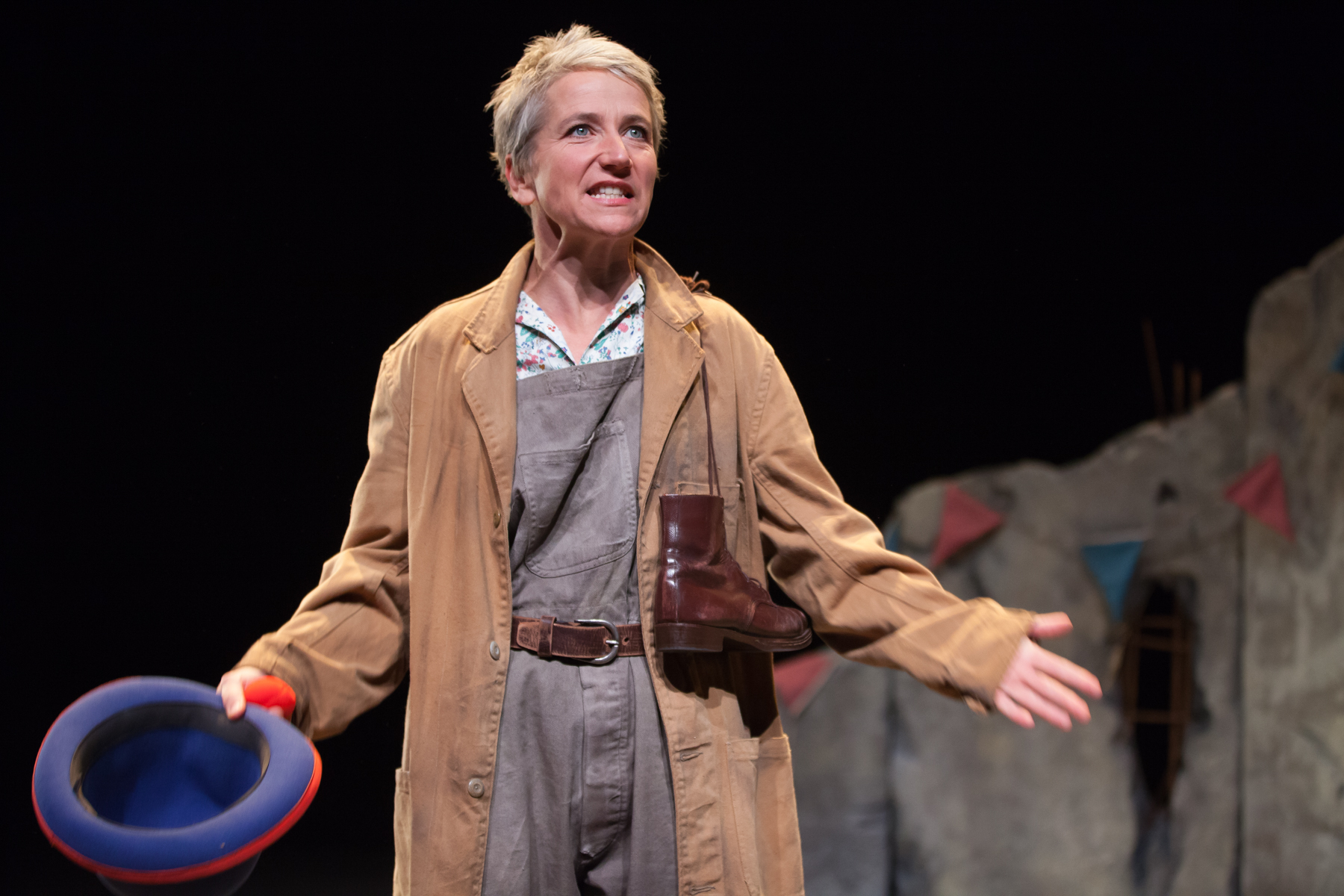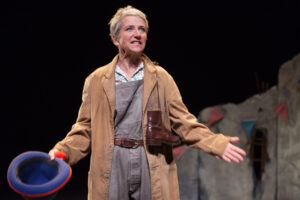

Alison Reid took An Elephant in the Garden on a European Tour that included the Sam Wanamaker Playhouse in London.
Colleen Hammond | Opinions Editor
1/23/20
On the quaint stage of the Byham Theater, a remarkable story of familial bonds and personal growth amid disaster took center stage as An Elephant in the Garden made its Pittsburgh debut.
This one-woman show tells the story of a young German girl named Elizabeth and her family as they struggle for survival during the dark days of air raids, famine and constant loss during World War II.
Alison Reid, the star of this one-woman masterpiece, shines in this role. Her ability to perfectly craft characters through her physicality is unmatched. Reid beautifully portrays a teenage girl, her parents, neighbors, extended family and, most impressively, an elephant. Somehow, without extensive costuming or puppetry, Reid manages to convey the heavy, thundering steps of the elephant. Her movement is honest and engaging without appearing gimmicky. This feat alone makes the show worth seeing.
Even though she is the only actor onstage, her presence fills the space remarkably well. Reid makes great use of her environment, frequently crossing the stage and changing her physicality to maximize intrigue. Despite the tragic storyline and limited characters, Reid captures the audience’s attention for the entire show.
In addition, Reid’s performance was heavily aided by a fabulous script written by Michael Morpurgo. His extensive background in writing children’s books primed him to write believable teenagers. The characters of Peter and Elizabeth have a unique sense of honesty and genuineness about them. Although these young people are placed in the horrific circumstances of war-torn Germany in the middle of World War II, Morpurgo expertly balances their newfound maturity with their child-like instincts.
While this may seem like an overdone plot or exaggerated war story, Morpurgo finds a way to make this script feel fresh and new. He utilizes stunning imagery to convert the simple sets and single actor into the quiet, snow-covered woods of eastern Germany.
To assist in the transformation of the space, this production features a beautiful lighting design. The transition from one location to another appears flawless, while the ever-changing mood of the story is furthered conveyed by simple changes in color and brightness. This remarkable lighting design is the icing on the cake for this deep and moving play.
Despite the playwright’s gorgeous imagery, the great lighting and the mindblowing talent of Reid, there is one major issue with this show. An Elephant in the Garden premiered in Pittsburgh as part of the EQT Bridge Theater Series. This program was designed to bring professional, international theater to the children of Pittsburgh. During the pre-show announcements, it was stated that this production was for a pre-teen audience.
While the show was absent of foul language or explicit sexual imagery, this production seemed very dark for children ages 10-12, especially since the majority of the children in the audience appeared younger than the suggested age bracket. Although it is necessary to educate children on the horrors of the Nazi party and the destruction that accompanies war, this seemed like a rather jarring history lesson for Saturday matinee of a children’s show.
In addition, the cover of the playbill featured images of a playful elephant and Reid skipping through a pile of clouds with the title of the play in large, inviting yellow letters. An Elephant in the Garden seemed to market itself as a children’s show, but proves far from it.
It deals with highly complex themes of nationalism, identity, war, grief, loss, homelessness and refugeeism. Reid describes in vivid detail the bombing of Desden and the subsequent fires that destroyed the city, killing hundreds. She also uses highly inflammatory, antisemitic phrases when portraying Elizabeth’s uncle. These elements are all necessary to the story and make it much more believable, but this show is not for children.
An Elephant in the Garden proved to be a lovely show about the importance of family during a crisis. Its lighting design, masterful script and outstanding talent made this show a great addition to Pittsburgh’s 2019-2020 season, but this piece of theater might not be suitable for younger audiences.



